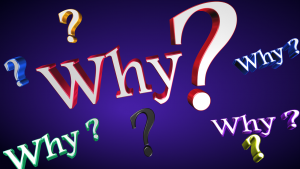Freely writing your thoughts and immediately destroying them has been the starting point for almost every person I have seen heal. My concept of why it is effective is because humans cannot escape their thoughts, this process allows you to separate from them. The reason to destroy them is be able to write with freedom and also so you don’t analyze them. These are not “issues” that are on the paper. They are only thoughts. If you want to spend time with them, you will reinforce them. Your brain will develop wherever you place your attention. You might as well put your hand into a wasp’s nest.
Begin writing now
I ask my patients to begin the expressive writing quickly before they read my book. From the beginning it creates some level of a shift and seems to open the door to change. Many people resist this simple exercise. That includes me. I am not sure why so many people resist this foundational step, since there is no risk or cost. Over 2200 research papers have demonstrated its effectiveness. But I hear and endless number of reasons why he or she can’t write. One of them is, “My hands hurt or are unsteady.” “I don’t have the time.” “My life is unusually stressful.” There is another alternative – the verbal route.

The mirror
Dr. Wegner, author of the famous “White Bears” article (1) on suppressing thoughts pointed out that the verbal route of expressing thoughts is also effective. I recall in the midst of my misery that one exercise that helped create a shift was one suggested by David Burns in his book, Feeling Good. He said to stand in front of a mirror and talk to that person using the self-critical voices in your head. You would never talk to another person in that manner. Of course, you can speak with freedom and there is nothing to destroy. I have to say that it was disconcerting I and I quickly realized how toxic these thoughts were. So I suggest to my patients that they can express themselves verbally in private with or without a mirror.
One research paper (2) looked at switching the self-talk voice from the first to the third person. Of course, most of our self-talk is negative, which is an unfortunate part of the human experience. They were able to document on functional MRI (fMRI) scans, which document area of brain activity that this process calmed down the region of the amygdala (considered the danger signal area) without engaging the higher thinking areas of the brain. In other words, it cut through the need for using your cognitive function to do battle with anxiety.
Using words
I want to share an email I received from one of my colleagues.
While expressive writing is great, I find that at home, I rarely can find a solid uninterrupted 20-30 minutes to dedicate to it, with professional obligations, my wife, and daily life/planning/activities/chores. I’ve tried doing it at work, but distractions and tasks are ever-present.
So, what I have been doing is during my drive home (which can be up to 45 minutes or more), or during my 15-20-minute walk to the gym, I simply visualize writing, or narrate to myself what I would write. It flows even faster than writing, and once I get going, the words flow, the images flurry, and I get it all out in the open. Then, if in the car, my personal favorite is to laugh at how ridiculous it sounds or, if particularly angry, swear it all away. When at the gym, with every repetition I imagine squashing it.

I do this about 4 times a week and all the negatives of the day, personal challenges, or doubts about the future turn from massive, insurmountable problems to very solvable obstacles; it’s incredibly energizing.
I have found that even with the writing exercises, it wasn’t the act of writing, but the act of ripping it up and throwing it away that felt so liberating. If it was a great week and my writing was all positive, I’d read it a few times and be proud, and throw it away. It is that physical act of squashing, tearing, destroying negativity that is what makes all the difference.
A few months ago I read a book called The Charisma Myth, and one part was about managing stress with public speaking. The technique the author described was closing your eyes, identifying all doubts, negative thinking, worry, stress, and visualizing all this negative energy being expelled to either a benevolent god, the universe, or something that the individual personally identifies with. When I had to have some difficult conversations and meetings over the last few months, before every meeting I closed my eyes, identified my stress, nervousness, doubts, etc. and visualized myself breathing out these thoughts to a collective universal being, where I identified that billions before me and billions after me have had these same exact feelings, and I could expel it to a pre-existing unity. I walked into the meeting calm, cool, and collected, and though it was tough, I was able to think clearly, not shy away from making my case, and stand my ground confidently.
I think this illustrates that feelings, especially negative ones, like anxiety, stress, uncertainty, self-doubt, pain, etc. are all intangible ideas. The act of making it tangible, whether it be through the written word, a visualized entity, or an audible sound (like when I dictate to myself) makes it something tangible and something people are comfortable dealing with. Squashing that tangible thing, whether by tearing it up, pounding it away in the weight room, swearing it away in my car, or breathing it out to a universal entity, are all physical, tangible methods of dealing with a now tangible foe that was before just an illusory concept. And that’s what makes these tools so powerful.
Neuroplasticity
The concepts of rewiring your brain (neuroplasticity) are based on awareness, separation and reprogramming. The writing creates an awareness of what is racing around in your brain and now there is a space between you and your thoughts. The verbal route also creates a separation, and you are now able to re-direct your attention to whatever you choose. The data is convincing.

Here is a link to a detailed overview I created to explain the details of expressive writing. You don’t have to write for 15-20 minutes day. As little as a minute can change the nature of your day. I also feel it is important to write at least several times a week indefinitely. It is a way of “maintaining” your brain.
We asked Dr. Pennebaker, the originator of the research, why he thought it was so effective. It was his impression that it was a simple way to release secrets, not solve or get rid of them. Everyone has some parts of themselves they are not particularly proud of. It is just the way human consciousness works. It is not a solution for your mental or physical pain in isolation, but it is a necessary starting point. I have seen few, if any, people deeply heal without this exercise.
References
- Wegener DM, et al. “Paradoxical effects of thought suppression.” Journal of Personality and Social Psychology (1987); 53: 5-13.
- Moser, JS et al. Third-person self-talk facilitates emotion regulation without engaging cognitive control: Converging evidence from ERP and fMRI. Scientific Reports (2016); 7: 4519 | DOI:10.1038/s41598-017-04047-3
